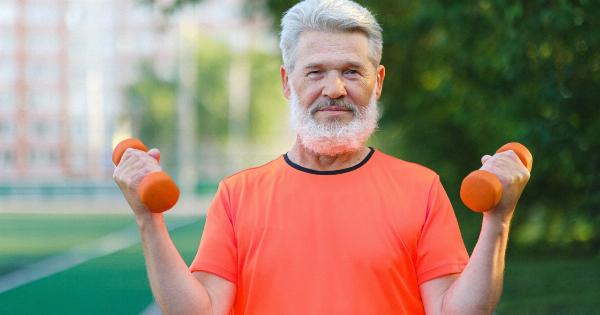Vitamin D is essential for maintaining and promoting bone health in the elderly. It is also important for maintaining muscle strength and balance.
Vitamin D can also help reduce the risk of falls, especially in those who are at higher risk for falls, such as the elderly. In this article, we will discuss how vitamin D can benefit the elderly.
What is Vitamin D?
Vitamin D is a fat-soluble vitamin that is produced in the skin when it is exposed to sunlight. It can also be obtained from certain foods, such as fortified milk, oily fish, and egg yolks.
Why is Vitamin D Important for the Elderly?
As we age, our bodies become less efficient at producing vitamin D from sunlight. This means that many older adults may not be getting enough vitamin D, which can lead to a deficiency.
Vitamin D deficiency has been linked to a number of health problems in the elderly, including osteoporosis, falls, and fractures.
Benefits of Vitamin D for the Elderly
1. Maintains Bone Health
Vitamin D is essential for the absorption of calcium and phosphorus, which are important minerals for maintaining strong bones. Without enough vitamin D, the body cannot absorb enough calcium, which can lead to weak bones and osteoporosis.
Studies have shown that elderly individuals who take vitamin D supplements have a lower risk of fractures and falls.
2. Reduces Risk of Falls
Falls are a major concern for the elderly, as they can lead to serious injuries and a loss of independence. Vitamin D can help reduce the risk of falls by improving muscle strength and balance.
It has also been shown to reduce the risk of fractures in elderly individuals who have already fallen.
3. Improves Muscle Strength
Vitamin D is important for maintaining muscle strength, which can help prevent falls and other injuries. It has also been shown to improve muscle function in the elderly, which can help improve overall mobility and quality of life.
4. Reduces Risk of Chronic Diseases
Vitamin D deficiency has been linked to a number of chronic diseases, including heart disease, diabetes, and certain cancers. By getting enough vitamin D, the elderly can reduce their risk of developing these diseases and maintain good overall health.
5. Improves Mood
Studies have shown that vitamin D may be important for maintaining good mental health, especially in the elderly. It has been linked to a lower risk of depression and other mood disorders.
How Much Vitamin D Do the Elderly Need?
The recommended daily intake of vitamin D for the elderly is 800-1000 IU per day. However, some studies have suggested that higher doses may be more effective, especially for those who are deficient.
It is important to talk to a healthcare provider before starting any vitamin D supplements.
Sources of Vitamin D
The best source of vitamin D is sunlight. However, many elderly individuals may not get enough sun exposure, especially if they are homebound or live in northern latitudes.
Vitamin D can also be obtained from foods such as fortified milk, oily fish, and egg yolks.
Conclusion
Vitamin D is important for maintaining good health in the elderly. It can help improve bone health, reduce the risk of falls, improve muscle strength, and reduce the risk of chronic diseases.
It is important for elderly individuals to get enough vitamin D, either through sunlight or supplements, to maintain good overall health and well-being.






























